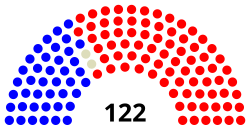| Name | Party | County/District | Term | Session |
|---|
| 01 |  | Thomas Barnes | | Claiborne | October 6, 1817 – February 8, 1818 | 1st |
| 02 |  | Edward Turner | | Adams | January 4, 1819 – February 1819 | 2nd |
| Adams (Natchez) | January 3, 1820 – February 12, 1820 | 3rd |
| 03 |  | Beverly R. Grayson | | Adams | January 1, 1821 – February 12, 1821 | 4th |
| 04 |  | Cowles Mead | | Jefferson | November 5, 1821 – June 30, 1822 | 5th |
| 05 |  | Gerard C. Brandon | | Wilkinson | December 23, 1822 – January 21, 1823 | 6th |
| 06 |  | Cowles Mead | | Jefferson | December 22, 1823 – January 23, 1824 | 7th |
| January 3, 1825 – February 4, 1825 | 8th |
| 07 |  | Isaac R. Nicholson | | Copiah | January 2, 1826 – January 31, 1826 | 9th |
| January 1, 1827 – February 8, 1827 | 10th |
| 08 |  | Charles B. Green [18] | | Adams | January 7, 1828 – February 16, 1828 | 11th |
| 09 |  | William L. Sharkey | | Warren | January 5, 1829 – February 6, 1829 | 12th |
| 10 |  | Joseph Dunbar | | Jefferson | January 4, 1830 – February 13, 1830 | 13th |
| 11 |  | M. F. Degraffenreid | | Wilkinson | November 15, 1830 – December 16, 1830 | 14th |
| November 21, 1831 – December 20, 1831 | 15th |
| 12 |  | David Pemble | | Amite | January 7, 1833 – March 2, 1833 | 16th |
| 13 |  | A. L. Bingaman | | Adams | November 18, 1833 – January 30, 1835 | 17th |
| 14 |  | John Irvin | | Carroll | 1836–1837 | |
| 15 |  | William Vannerson | | Lawrence | 1837–1838 | |
| 16 |  | J. W. King | | Rankin | 1838–1840 | |
| 17 |  | Jesse Speight | Democratic | Lowndes | 1840–1841 | |
| 18 |  | James A. Ventress | | Wilkinson | 1841–1842 | |
| 19 |  | Robert W. Roberts | Democratic | Scott | 1842–1844 | |
| 20 |  | J. L. Totten | Democratic | Marshall | 1844–1846 | |
| 21 |  | James Whitfield | Democratic | Lowndes | 1846–1848 | |
| 22 |  | John J. McRae | Democratic | Clarke | 1848–1852 | |
| 23 |  | William S. Patton | | Lauderdale | 1852–1854 | |
| 24 |  | Hiram Cassedy | | Franklin | 1854–1856 | |
| 25 |  | William S. Barry | Democratic | Lowndes | 1856–1858 | |
| 26 |  | James L. Autry | | Marshall | 1858–1859 | |
| 27 |  | J. A. P. Campbell | | Attala | 1859–1861 | |
| 28 |  | William A. Lake | | Warren | 1861–1862 | |
| 29 |  | J. P. Scales | Democratic | Carroll | 1862–1863 | |
| 30 |  | Lock E. Houston | | Monroe | 1863–1865 | |
| 31 |  | Samuel J. Gholson | Democratic | Monroe | 1865–1866 | |
| 32 |  | Freeman E. Franklin | Republican | Yazoo | 1870 | |
| 33 |  | Henry Waterman Warren | Republican | Leake | 1871–1872 | |
| 34 |  | John R. Lynch | Republican | Adams | 1872–1873 | |
| 35 |  | Hugh M. Street | Democratic | Prentiss | 1873–1874 | |
| 36 | 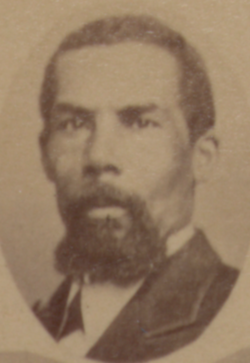 | Isaac D. Shadd | | Warren | 1874–1876 | |
| 37 |  | Hugh M. Street | Democratic | Prentiss | 1876–1878 | |
| 38 |  | William A. Percy | Democratic | Washington | 1878–1880 | |
| 39 |  | Benjamin F. Johns | Democratic | Amite | 1880–1882 | |
| 40 |  | W. H. H. Tison | Democratic | Lee | 1882 | |
| 41 |  | William M. Inge | Democratic | Alcorn | 1884–1886 | |
| 42 |  | Jacob H. Sharp | | Lowndes | 1886–1888 | |
| 43 |  | Charles B. Mitchell | Democratic | Pontotoc | 1888–1890 | |
| 44 |  | James S. Madison | Democratic | Noxubee | January 7, 1890 – February 24, 1890 | 1890–1892 |
| 45 |  | Hugh M. Street | Democratic | Lauderdale | January 5, 1892 – January 2, 1894 | 1892–1896 |
| 46 |  | J. K. Vardaman | Democratic | Leflore | January 2, 1894 – February 10, 1894 |
| 47 |  | James F. McCool | Democratic | Attala | January 7, 1896 – February 11, 1898 | 1896–1900 |
| 48 |  | A. J. Russell | Democratic | Lauderdale | January 2, 1900 – March 5, 1902 | 1900–1904 |
| 49 | 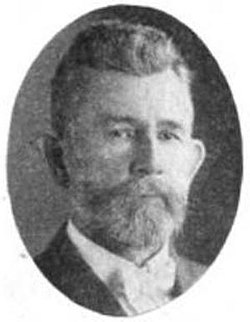 | Emmet Thomas | Democratic | Washington | January 5, 1904 – April 21, 1906 | 1904–1908 |
| 50 |  | Hugh M. Street | Democratic | Lauderdale | January 7, 1908 – November 15, 1911 | 1908–1912 |
| 51 |  | Hillrie M. Quin | Democratic | Hinds | January 2, 1912 – March 28, 1914 | 1912–1916 |
| 52 |  | Mike Conner | Democratic | Covington | January 1916 – March 1918 | 1916–1920 |
| 1920–1924 | |
| 53 |  | Thomas L. Bailey | Democratic | | 1924–1936 | |
| 54 | 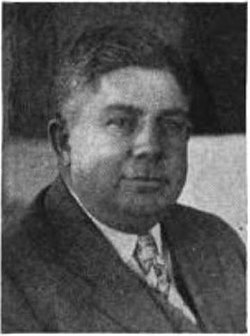 | Horace Stansel | Democratic | Sunflower | 1936–1936 | |
| 55 |  | Fielding L. Wright | Democratic | | 1936–1940 | |
| 56 |  | Samuel Lumpkin | Democratic | Lee | 1940–1944 | |
| 57 | 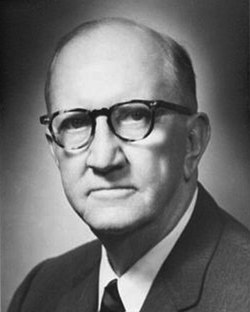 | Walter Sillers Jr. | Democratic | Bolivar | 1944–1966 | |
| 58 |  | John R. Junkin | Democratic | Adams | 1966–1976 | |
| 59 |  | Buddie Newman | Democratic | | 1976–1988 | |
| 60 |  | Tim Ford | Democratic | 18 | January 5, 1988 – December 20, 1991 | 1988–1992 |
| 1992–2004 | |
| 61 | 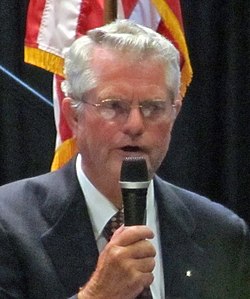 | William J. McCoy | Democratic | 3 | January 6, 2004 – May 18, 2007 | 2004–2008 |
| 2008–2012 | |
| 62 |  | Philip Gunn | Republican | 56 | January 3, 2012 – April 5, 2015 | 2012–2016 |
| January 6, 2016 – March 29, 2019 | 2016–2020 |
| January 2, 2020 – April 2, 2023 | 2020–2024 |
| 63 |  | Jason White | Republican | 48 | January 2, 2024 – Present | 2024–2028 |


